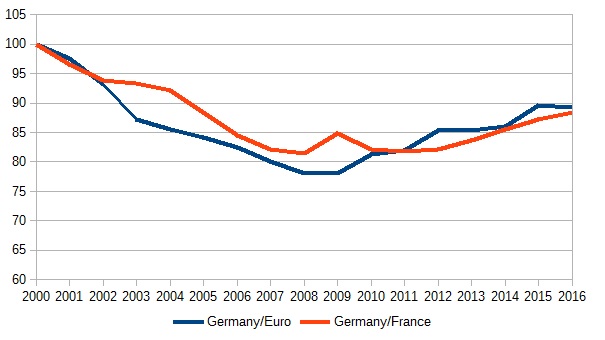A constant refrain
from politicians and others is that we have to leave the EU because
we have to respect democracy, where by democracy they mean that 52%
voted to do so. Arguments that the vote was based on lies by the
Leave side are met with dismissive remarks like both sides were the
same, or what do you expect from politicians and so forth. The
important thing, we are told, is to ‘respect democracy’.
In Poland the
government recently passed a law which will dismiss all existing
judges and allow the state to directly appoint their successors. This
government was democratically elected, and the plan was in their
manifesto. So why did the Polish President veto
the plan, and why was the EU deeply concerned
about it? Surely there was a clear mandate for this policy? Shouldn’t
the President and the EU respect democracy?
The reason why the
President and the EU were right is that democracy is much more than
having elections or referendums every so often. Checks and balances,
and the rule of law, are crucial ingredients of a well functioning
democracy. But having an independent judiciary is not the only
essential characteristic of democracy besides voting.
I personally think
an important part of democracy is that politicians do not base
campaigns on complete lies, and that knowledge, evidence, facts and
expertise are respected and are easily accessible to all voters.
Otherwise elections can be won by those who tell the biggest lies. If
this happens and is not remedied democracy is a sham. As I noted
here, lies were central to the Leave campaign (more money for the
NHS, Turkey about to join the EU) and have already been shown to be
untrue, while the central plank of the Remain campaign (dubbed
Project Fear by Leave) has already come to pass. Polls suggest the
Leave lies gained
them votes. Only one side in the campaign spent a large amount of
time dismissing or denigrating academic expertise (be it economists
or lawyers).
In the US the
Republicans control Congress and the White House, all won by
democratic elections where a key part of the Republican platform was
repealing Obamacare. The Republicans therefore appear to have an
overwhelming democratic mandate for this repeal. So why are so many
people protesting against this repeal? Isn’t it important for
democracy that repeal goes ahead?
You may say that the
Republicans did not say how they would repeal Obamacare, but
neither did the Leave campaign say how they were going to leave the
EU (or rather they said whatever people wanted to hear). You may say
that Leave voters will lose their faith in the democratic system if
Brexit doesn’t happen, but the same is surely true for Republican
voters if Obamacare is not repealed. That is hardly a reason to do
it.
But referendums are
not like elections, we are told. Mandates from elections can be
challenged but referendum results must be respected. But where is it
written that referendum results (particularly those that are so
close) can never be challenged? Where is it written that we must be
bound
by the words of politicians during the referendum.[1] If it turns out
that the claims of one side in the referendum have been shown to be
false, where is it written that the referendum result should
nevertheless be cast in stone for a generation. The answer is
nowhere, and for the good reasons that David Allen Green explains.
All that is written is that parliament is sovereign.
People overseas, in
the EU or outside, are mystified at what the UK is currently doing.
The main supporter of Brexit overseas is an authoritarian regime,
which should give you a clue about what is going on. There are two
overwhelming reasons for challenging the referendum result: it was
arrived at after a deeply flawed campaign, and we now have
information that clearly shows the extent of the Leave campaign's
lies. The Leave campaign abused democracy before the vote with lies,
and then abused the word subsequently
to stifle any dissent. When a vote is won narrowly in an election
based on lies that have now been exposed, it seems to me a hallmark
of a functioning democracy is that the original vote is challenged
and voters have a chance to vote again.
[1] We could add
whether we should be bound by an electorate chosen
to keep Brexiteers happy.


